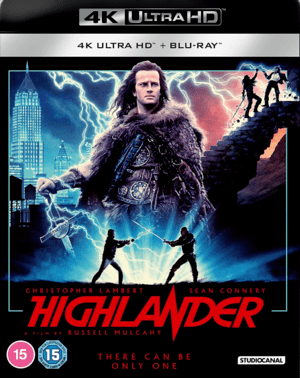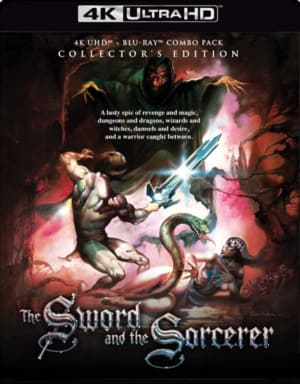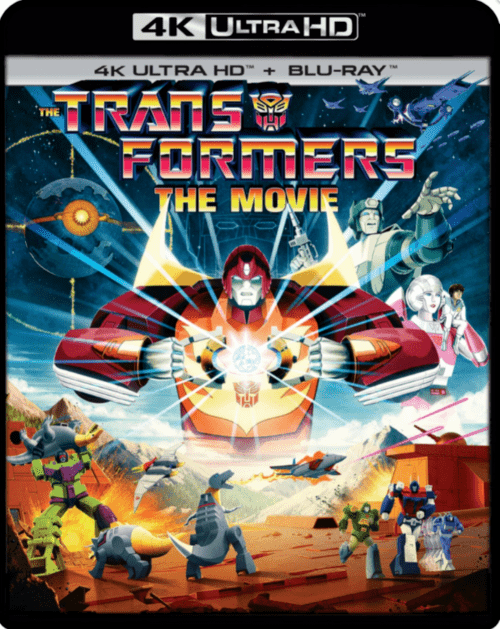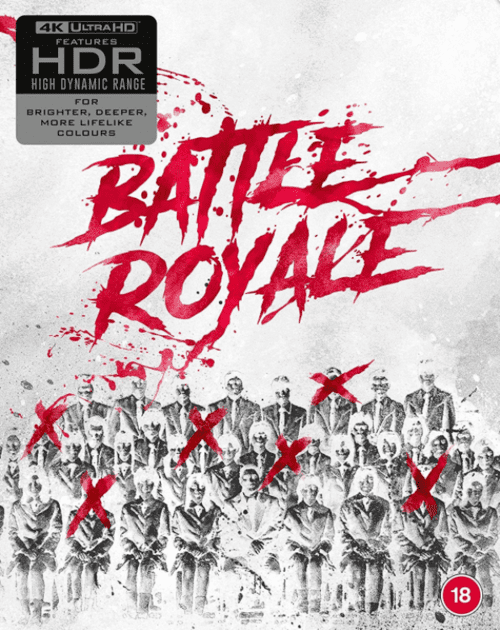Story Movie
![Highlander 4K 1986 Ultra HD 2160p]()
In 1536, the Scotsman Connor MacLeod was slain in battle, but mysteriously resurrected, and his clan banished him. McLeod's teacher was a Spanish nobleman who explained that they belonged to an immortal race of warriors who could be deprived of life only by decapitation with the sword.
The battle between Macleod and his eternal enemy the Mound, which began in sixteenth-century Scotland, continues in present-day Manhattan. The fate of all mortals depends on the outcome of this battle. It is part of a duel that goes on for centuries.
Review 4K Movie
Hooray, hooray! I've finally solved the mystery of Phil Connors from 'Groundhog Day'! Yes, it never even occurred to anyone that nerdy Phil was just one of the immortals of the MacLeod clan, but in the backwater town of Punxsutawney there was no one to come and blow the head off the cynical TV reporter. So he lived from day to day, unaware of his destiny. Thus the only one left alive was Phil Connors!
Well, in all seriousness, without any swords and higher destinies, without mysticism and prayers, the film "Highlander" is undoubtedly one of the immortal masterpieces of fantasy cinema. It immortalized the name of Christopher Lambert, a good and very subtle European actor, who played for Besson and Ferreri, but who, after Highlander, was never called anything but MacLaw. And director Russel Mulcay, a solid craftsman, has not sullied himself with anything more outstanding and is still perceived as 'the guy who made that very 'Highlander'. The film became a cultural phenomenon. It made three full sequels, a TV series, several sequels, 14 books, an opera, an animated series, comics, video games, was parodied by everybody, entered the mass culture, and a peculiar Highlander Universe appeared. When I was a kid, playing soldiers with my friends, I used to yell if the mean Seryoga managed to shoot me with a water pistol: 'I don't give a shit! I'm McLeod! And they understood me, because everyone had seen 'Highlander' like 'Robocop' or 'Terminator.
There will always be more arguments for the film than against it. The only things that are "against" the film are the special effects which become obsolete with every year and which are snorted at contemptibly by the present-day youth, and the specific dragging-out characteristic of most unhurried sci-fi films of the 80s in which the action as such was not yet put at the head of the table. And 'for' - everything else: a fascinating plot, a mind-blowingly charismatic hero who you want to imitate and be, because immortality as a child looks extremely attractive and promising, cool sword fights, real battles, not any newfangled police shooters, a kind of nobility and mystery covering the endless existence of the hero, who has lived centuries and who has seen and remembered almost everything!
McLeod is a character who is, by idea, stunningly useful. After all, he alone can tell the truth about things that others can only guess at! His experience exceeds that of any man by a thousand times, and he possesses knowledge that no one else is destined to possess. And this makes the image of the Highlander appealing to the point of utter delight.
Of course, immortality has its drawbacks. 'The bicentennial man' has lost all his loved ones in two hundred years, what to say about McLeod's half-a-thousand-year life. He is doomed to be lonely because he doesn't want to lose and lose the people he loves every time, and he also has a pronounced complex of his own secret identity, as well as the need to die officially and resurrect himself elsewhere under a different name, which in these times of total population control is fraught with many bureaucratic difficulties. And it should not be forgotten that the poor mountaineer is always dragged by a trail of death, and he lives in constant expectation of his own demise by the sword of a similar, but stronger one. However, a man can not be alone all the time, he has to fall in love, find friends and lose them time after time. That is why Connar MacLeod is a deeply interesting, thoughtful, somewhat autistic and depressive personality.
The lion's share of The Highlander's appeal lies in the well-written character in the script, as well as in all kinds of speculation with which, no doubt, the viewer surrounds the character he likes. But we should not dismiss Christopher Lambert, who embodied this character on the screen with great dedication. The European actor, who would have had a very different career without The Highlander, is succinct and precise in every scene. Time appears to his character in a very different light than it does to ordinary people, and McLeod is aware of this. He holds within him the memories of centuries gone by, he has carried through them great love and many dramas of life. He has seen it all, he knows it all, there are no surprises in his world. In fact, he is a god. As they say in that same 'Groundhog Day': 'God has just lived so long that he's used to everything!' But with tense, anxious eyes he stares into the thick darkness of the night, waiting for centuries to fulfill his destiny. How many such anxious, sleepless nights there were in his life without love, without warmth, without care. We get tired in 70 years, and how tired the mountaineer was! The actor's coldly depressive image is very organically woven into the fabric of an equally cold, bleak narrative, no doubt drawing on the tradition of Ridley Scott, who had directed 'Blade Runner' a few years earlier. The actor was so precise that he literally grew into the role. It is rare and usually reflects badly on the career, but it is also a great luck when you can get into the soul of the audience that they will always remember you as such.
Mulcay's film, surprisingly enough for the director himself, probably gravitates much more in the direction of the intellectual sci-fi action film opened by Ridley Scott than the numerous 'theme' trinkets devoid of the style and unmatched energy of the film. Abundant in beautiful flashbacks, taking us back to the Middle Ages, the French Revolution and the fields of WWII, the film is visually rich, mesmerizingly beautiful and atmospheric. It is not overloaded with action and special effects, not overloaded with characters and dialogue, hence the golden mean between the visual and the intellectual is found. Therefore, like Blade Runner, Highlander was received with cold acceptance in the United States the year of its release, was considered a dubious achievement, but delighted Europeans and only became a cult movie in its homeland after a certain lapse of time. This cultishness is paradoxical. All the Highlander films, starting with the first one, have steadily failed at the local box office, and yet this has not prevented them from becoming hugely popular with the public, and producers from investing in the next sequel. I don't know a similar phenomenon in cinema.
Undoubtedly, the success of the film among young people contributed to the participation of the band 'Quinn', and a brilliant game of ironic Sean Connery, and the success among researchers, thoroughly studying any ambiguous film - the religious and mystical subtext, thanks to which fans of the Highlander universe are writing entire philosophical treatises. And for our viewers, it was one of the first windows into the world of unplanned Western cinema.
'Highlander' is a film about destiny, if you will. And if you want - a sci-fi action film, or - a religious parable about angels of heaven and hell, or - philosophical fiction. You can take it any way you want, but the fact remains: a phenomenon and an absolute cult, the beginning of an endless saga, a film not stupid, notable, necessary for world cinema and...truly immortal.



 [/full-link]
[/full-link]
 [/full-link]
[/full-link]
 [/full-link]
[/full-link]
 [/full-link]
[/full-link]
